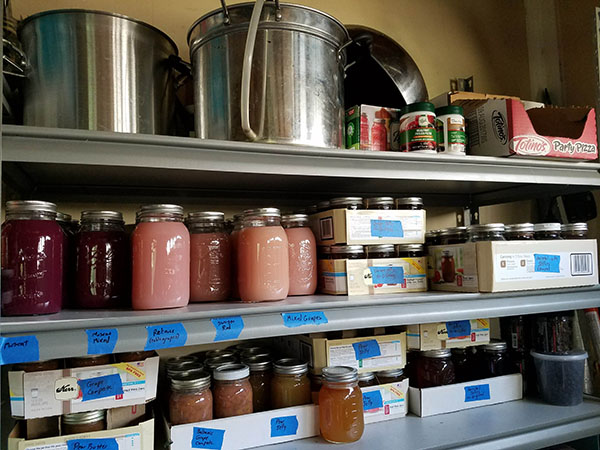Preparing for Winter

Our lives are governed by seasons. Even in modern living where we have grocery stores stocked with every item almost all year round, there is still a seasonality to our lives. Marketers capitalize on this natural inclination using seasonal shift to send demand toward different items. Though there is a simple life logic to purchasing certain items in the spring (swimsuits, sandals, patio furniture) and other items in the fall (fuzzy blankets, flower bulbs, pumpkin everything.) Even during the years when my life was so internally focused that the seasons changed unnoticed around me, I was still affected by things such as holidays and the onset or cessation of school. We don’t have any household members in school anymore, so it would make sense for me to be less aware of seasonal change. Instead the opposite is true.
This year there is a hum in the back of my head spurring me to prepare for the winter. It is going to get cold, some tasks are harder in the cold, so get them done now. Fix that cracked window. Spray wash the garbage can. Deep clean the kitty litter. Cut back that over grown vine. Preserve food and acquire food so that it can be available out of season. I’ve done far more canning this year than I have in quite a while. I know that some of this food prep is driven by the pandemic and economic uncertainty. I have this urge to acquire resources now against potential coming hardship. I’ve been streamlining and organizing food stores, not just accumulating, but starting to understand exactly how many sticks of butter we go through in a week so that I can calculate what is a reasonable amount to store. If I store too much food, it will go bad before we can eat it, which is a waste. If I don’t store enough, then if my family is hit with a mandated quarantine period or some other financial hardship, we could run out.
Several months ago, at the beginning of the pandemic, my neighbor and I were talking about the empty grocery store shelves. She pointed out that the food-hoarding behaviors were often driven by food insecurity. Anyone who has experienced food insecurity is more likely to grab extra food just in case. At around the same time I read some posts from an online friend who grew up in the Caribbean. At the beginning of the pandemic he suddenly found himself selling off an extra car, buying an extra freezer, re configuring his house for working and schooling at home. He was ahead of the curve on all of those things because he was raised in hurricane territory and some deep-instinctual part of himself was thrumming with “there is a storm coming.”
I’ve never lived in hurricane country and I’ve never been food insecure, however I grew up in a culture that valued emergency preparedness, we spent two years with massive financial insecurity, followed by nearly two decades of highly variable income which continued to feel financially insecure. Like my online friend, I feel a storm is coming and I’m storing up the things I might need to get through it. It is one small lever of control when so much is far larger than me.